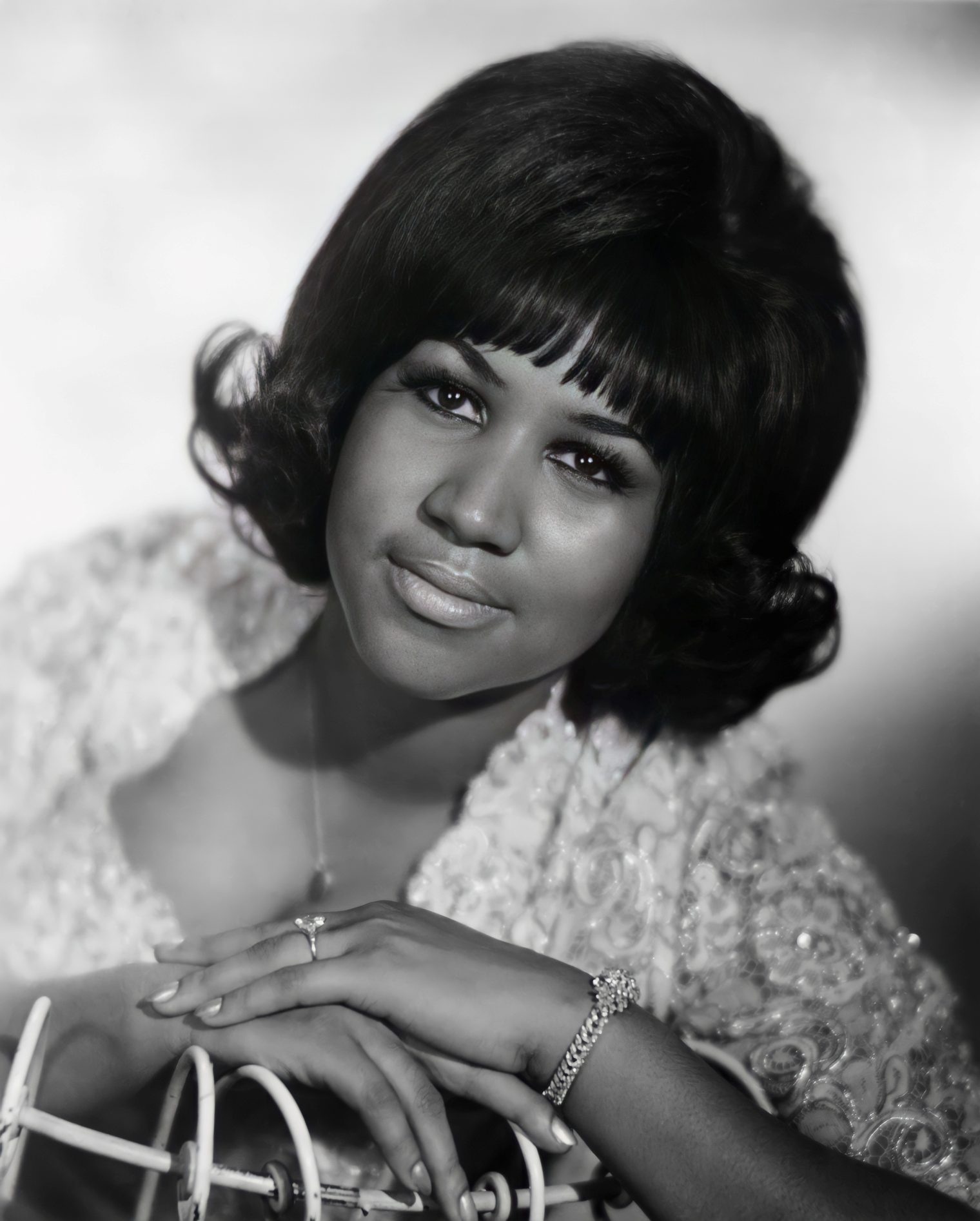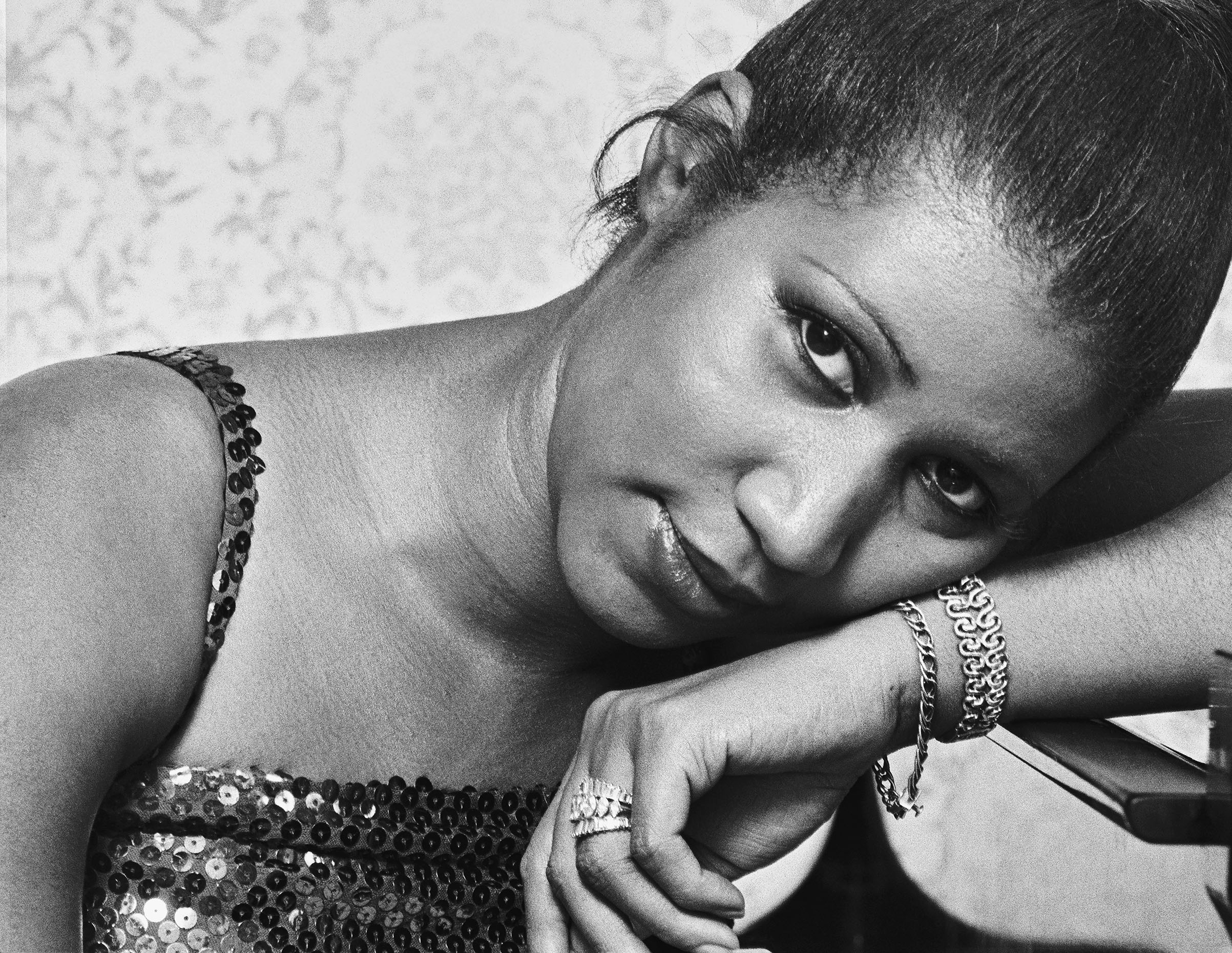When we talk about Aretha Franklin, the Queen of Soul, we often celebrate her incredible legacy, powerful voice, and groundbreaking impact on music. But behind the spotlight, there's a deeply personal story that shaped her life—one that begins with her mother, Barbara Siggers Franklin. Many fans wonder, "How did Aretha Franklin's mother die?" Today, we're diving deep into this question, exploring the truth behind Barbara's passing while honoring her memory.
You know, sometimes the stories behind the legends are just as fascinating as the legends themselves. Aretha Franklin's journey was heavily influenced by her family dynamics, especially her relationship with her mom. So, understanding how her mother's life ended not only sheds light on Aretha's upbringing but also gives us a clearer picture of the woman she became.
Before we jump into the details, let's set the stage. Barbara Siggers Franklin wasn't just any mother; she was a talented pianist and singer in her own right. Her untimely death left a lasting impression on young Aretha, shaping her worldview and fueling her passion for music. Let's explore how her tragic passing impacted one of the most iconic figures in music history.
- Chappell Roan Rolling Stone Pictures The Untold Story Behind The Iconic Photos
- Leaning Tower Las Vegas The Ultimate Guide To An Iconic Vegas Landmark
Biography of Aretha Franklin's Mother
Who Was Barbara Siggers Franklin?
Barbara Siggers Franklin was born in Memphis, Tennessee, where she developed a love for music early in life. Growing up in a devout Baptist household, she found solace in gospel music, which eventually became her calling. Her talent didn't go unnoticed, and she quickly rose to prominence as a respected church pianist and vocalist. But life had other plans for her, and her story took an unexpected turn when she met Clarence LaVaughn "C.L." Franklin.
Barbara married C.L. Franklin, a charismatic Baptist minister, and together they welcomed Aretha into the world in 1942. Their union was filled with both joy and challenges, but Barbara's dedication to her family never wavered. She balanced her musical career with raising her children, instilling in them a deep appreciation for art and faith.
Data and Facts About Barbara Siggers Franklin
| Full Name | Barbara Siggers Franklin |
|---|---|
| Birthplace | Memphis, Tennessee |
| Occupation | Pianist, Singer |
| Marital Status | Married to C.L. Franklin |
| Children | Aretha Franklin, Erma Franklin, Carolyn Franklin |
These facts paint a vivid picture of Barbara's life, highlighting her contributions to both her family and the music community. But the question remains—what happened to this remarkable woman?
- What Nail Salon Is Open Right Now Find Your Perfect Manipedi Spot
- 2 Piece Going Out Sets The Ultimate Guide To Stylish And Comfortable Outfits
How Did Aretha Franklin's Mother Die?
Now, here's where things get heavy. Barbara Siggers Franklin passed away in 1952 at the young age of 31. Her death was a devastating blow to her family, especially her young daughters, including Aretha, who was only 10 years old at the time. But what exactly caused her passing?
Barbara succumbed to a heart attack after battling health issues for years. While official records don't go into great detail, it's widely believed that her early death was linked to complications from high blood pressure and other cardiovascular problems. This tragedy left a void in Aretha's life that she carried with her throughout her career.
The Impact on Aretha Franklin's Life
Shaping a Musical Legacy
Losing her mother at such a young age profoundly affected Aretha's development as an artist. She often credited Barbara with instilling in her a love for gospel music, which later became the foundation of her legendary sound. In interviews, Aretha spoke about how her mother's absence drove her to seek comfort in music, using it as both an outlet and a form of healing.
- Aretha's soulful voice resonates with the pain and resilience she learned from her childhood experiences.
- Her ability to convey emotion through song can be traced back to her early exposure to gospel music under her mother's guidance.
- The loss of her mother fueled her determination to succeed, proving that adversity could be transformed into strength.
Family Dynamics After Barbara's Death
After Barbara's passing, Aretha's father, C.L. Franklin, became the primary figure in her life. Known as the "Million-Dollar Voice," he was a prominent preacher whose sermons drew massive crowds. While his influence was significant, Aretha also leaned on her extended family, including her siblings, for support during this challenging time.
This period of Aretha's life was marked by both struggle and growth. She learned to navigate the complexities of fame and family while honoring her mother's memory through her music. It's no wonder that her performances often carried an emotional weight that touched the hearts of millions.
Medical Insights: Understanding Heart Attacks in Young Women
To better understand Barbara's passing, it's important to delve into the medical aspects of heart attacks in younger individuals. While heart disease is often associated with older adults, it can strike at any age, especially if underlying risk factors are present.
According to the American Heart Association, high blood pressure, diabetes, and smoking are among the leading causes of heart attacks in younger women. In Barbara's case, her condition likely went undiagnosed or untreated due to limited medical resources during that era. This serves as a poignant reminder of the importance of early detection and proper healthcare.
Cultural Implications of Barbara's Death
Impact on the African American Community
Barbara's passing also had broader implications for the African American community, particularly in the realm of music and spirituality. As a talented musician and churchgoer, she represented a generation of women who used their gifts to uplift their communities. Her legacy lives on through Aretha, who carried the torch of gospel music into the mainstream, breaking racial and gender barriers along the way.
Today, we honor Barbara's contributions by recognizing the vital role women like her played in shaping cultural narratives. Their stories remind us of the resilience and creativity that define African American heritage.
Aretha Franklin's Public Reflections on Her Mother
Quotes and Anecdotes
Throughout her career, Aretha Franklin occasionally spoke about her mother in interviews and performances. Her words revealed a deep sense of admiration and gratitude for Barbara's influence on her life. Here are a few notable reflections:
- "My mother was my first teacher. She taught me how to play the piano and sing with passion."
- "Losing her was one of the hardest things I've ever experienced, but her spirit lives on in every note I sing."
- "She was more than just a mother; she was my inspiration."
These heartfelt statements underscore the lasting impact Barbara had on Aretha's life and career. They also highlight the universal theme of maternal love and its enduring influence.
Lessons Learned from Barbara's Story
Barbara Siggers Franklin's life and death offer valuable lessons for us all. Her story reminds us of the importance of prioritizing health, cherishing family, and pursuing our passions. It also highlights the need for greater awareness and access to healthcare, especially for marginalized communities.
In today's world, where heart disease remains a leading cause of death, we must take proactive steps to protect ourselves and our loved ones. By learning from Barbara's experience, we can honor her memory while striving for a healthier future.
Conclusion: Honoring Barbara Siggers Franklin's Legacy
As we reflect on the question, "How did Aretha Franklin's mother die?" we come to understand the profound impact her passing had on one of music's greatest icons. Barbara Siggers Franklin's life was cut tragically short, but her influence continues to resonate through Aretha's timeless music.
Let's take a moment to appreciate the strength and resilience shown by both mother and daughter. Their stories remind us that even in the face of adversity, we can find beauty, purpose, and inspiration. So, whether you're a lifelong fan of Aretha Franklin or simply someone who appreciates the power of music, remember to honor the legacies of those who came before us.
Now, it's your turn! Share your thoughts in the comments below or spread the word by sharing this article with friends and family. Together, let's keep the spirit of Barbara Siggers Franklin alive for generations to come.
Table of Contents
- Biography of Aretha Franklin's Mother
- How Did Aretha Franklin's Mother Die?
- The Impact on Aretha Franklin's Life
- Medical Insights: Understanding Heart Attacks in Young Women
- Cultural Implications of Barbara's Death
- Aretha Franklin's Public Reflections on Her Mother
- Lessons Learned from Barbara's Story
- Conclusion: Honoring Barbara Siggers Franklin's Legacy
- Netflix Ginny And Georgia Season 3 Trailer The Hype Is Real Yrsquoall
- Gizelle Bryant And Jason Cameron A Love Story That Captures Hearts
:max_bytes(150000):strip_icc():focal(731x0:733x2)/aretha-franklin-1-653089424bb9487cbadac25a71275533.jpg)

